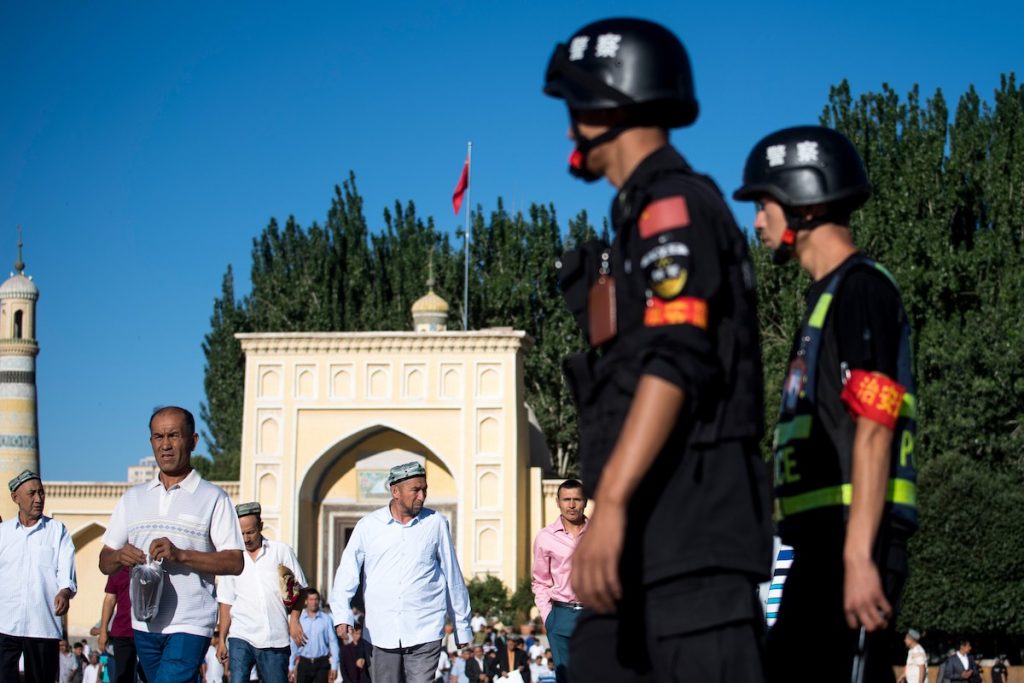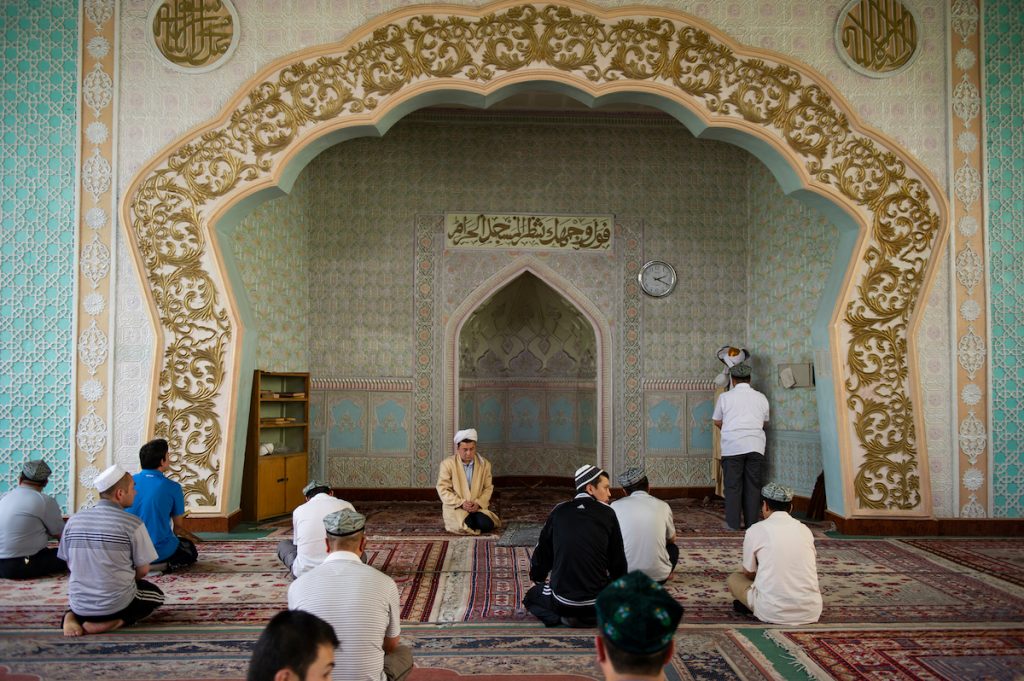
Hundreds of Muslim religious leaders are reportedly being detained by authorities in China’s northwest Xinjiang region.
A report by Radio Free Asia (RFA) , quoting a Uyghur linguist in exile, said at least 613 Muslim imams were arrested in a campaign of “extralegal incarceration.”
Abduweli Ayup, a Norway-based fellow with the International Cities of Refuge Network, told RFA that he learned of the arrests from interviews he did with Uyghurs from the region.
The report said up to 1.8 million Uyghurs and other Muslim minorities have been held in a vast network of internment camps in the region since early 2017.
Ayup said that he found in his research on the arrests of Muslims that “the most targeted population was religious figures.”
The researcher was speaking on Nov. 19 at a webinar hosted by the Washington-based Uyghur Human Rights Project titled “Where are the imams? Evidence for mass detention of Uyghur religious figures.”
“At the time, we had about 300 imams listed [as detained] and then we kept updating the figures and by June, the last update, it was 613 imams listed,” Ayup said.
At least 16 former camp detainees who were interviewed for the research said the arrests of imams have upended the Uyghur community in Xinjiang.
“They told me that after those imams were arrested, Uyghurs became afraid … of dying because there is no imam to [oversee their] funeral,” he said.

Rachel Harris, a professor of ethnomusicology at the School of Oriental and African Studies at the University of London, noted that imams, who are male, are not the only religious figures being targeted in Uyghur society.
While there is not an officially recognized religious category for women in Muslim communities, Harris noted that female religious leaders “are extremely important in Uyghur society.”
“They don’t officiate in mosques, obviously, they have a role within the home, but they do all of the same kind of important roles that the imam, the male imam do,” she said.
Harris urged Uyghur rights groups to include female religious leaders in their investigations into mass detentions and other rights abuses in the region.
Beijing describes the three-year-old network of camps as voluntary “vocational centers,” but reporting by RFA’s Uyghur Service and other media outlets shows that detainees are mostly held against their will in cramped and unsanitary conditions, where they are forced to endure inhumane treatment and political indoctrination.
The Australian Strategic Policy Institute released on Sept. 24 a report showing nearly 400 internment camps, with dozens newly built or expanded since 2017, in the region.
Source: Licas Philippines
0 Comments